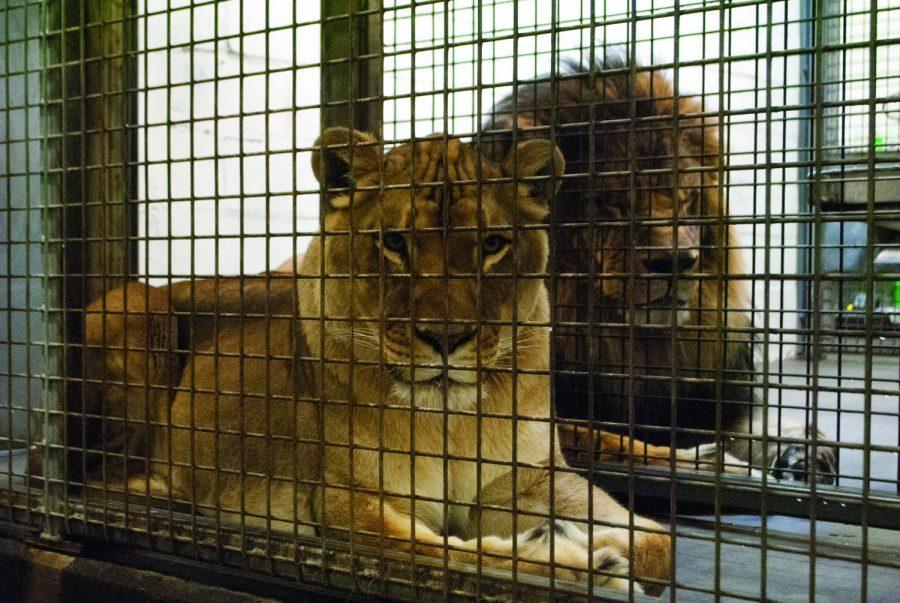Some cool cats: Caretakers maintain stable environment for lions in winter months
February 13, 2014
With the ‘big cold’ having a noticeable impact on the Shoals area, students may wonder how the university’s beloved mascots are handling the weather.
Leo III and Una are not actually exposed to the cold all the time, said Ann Howard, caretaker of the lions.
“They actually have a temperature controlled room they have access to at all times,” Howard said. “This room stays at a constant 70 degrees all year round — not too cool in the summer and not too hot during the winter.”
Senior Sarah Powers thinks the lions can adapt to the weather changes, she said.
“People can adapt to the cold, so I think (Leo III and Una) can, too,” Powers said. “As long as they are healthy, that’s all that matters.”
To help Leo III and Una adapt to the colder winter weather, the caretakers feed them more and give them straw to lay on when they are in the exhibit, she said.
“During the winter, he (Leo III) eats about 10 and a half pounds of food, and she (Una) gets about 6 and a half,” Howard said. “That’s up from about eight or nine pounds for him and about five pounds for her when the weather’s warm.”
One of the most important parts of keeping the lions happy is maintaining continuity, she said.
“They need continuity—the same people and contact. Everything has to be on schedule for them,” Howard said. “That’s why we can’t have student workers or volunteers because they graduate and leave on spring break and during the summer.”
The weather has yet to cause the lions’ temperaments to change. However, the older the lions get, the less they like to be uncomfortable, meaning caretakers do everything they can to keep them happy and healthy, Howard said.
“And they’ve been with me since just right after they were born.”
The only time the lions’ schedules deviate is during football season because they are at the home games, Howard said.
Howard is with the lions everyday from about 7:30 a.m. until after they eat dinner around 5:30 or 6 p.m. The lions are accustomed to the four workers who help take care of them, she said.
It is good they do not have student workers to take care of the lions, said Ashlea Clemons, a senior.
“Having student workers would be a liability,” Clemons said. “Just like any other animal the lions probably wouldn’t be very comfortable around people they don’t know.” “We have nine surveillance cameras outside and six inside,” she said. “So, we can see the lions at all times, whether they are inside the habitat or in (the room where the temperature is controlled), we can make sure they are okay.”
A fence that has two brass locks on it guards the lion habitat’s back entrance, and once that is open, a security code must be entered to open the door.
“After you get through the fence and in the door, you have to find the other security code box and enter a totally different code, Howard said. “If you don’t, the police will be immediately notified.”
Only five people know the codes, she said.
“Even the UNA police officers don’t know the code to get into the lion habitat,” she said. “Nobody’s getting in, unless they are supposed to be.”












